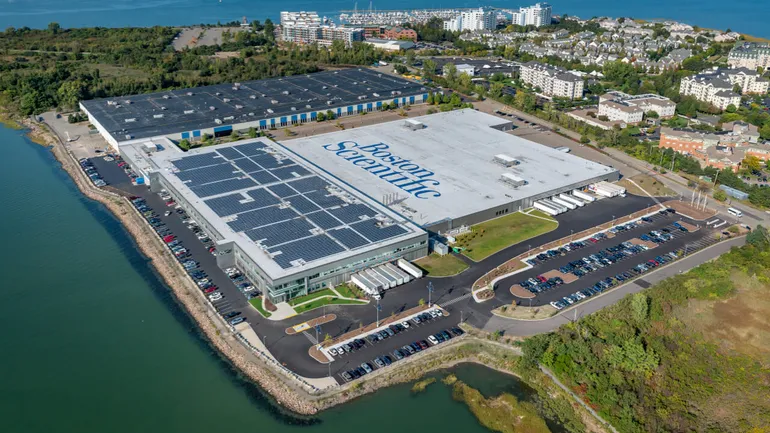The second wave of the medtech industry’s latest earnings season arrives this week, with Boston Scientific, Edwards Lifesciences and Dexcom all set to report their financial results.
Johnson & Johnson, Abbott and Intuitive Surgical made a mixed start to earnings season last week. J&J relied on acquisition-driven growth in cardiovascular sales to offset weakness elsewhere. However, CFO Joe Wolk conceded that adjusted operating medtech sales would likely grow closer to 5% than the previously forecast 6%.
Intuitive had a strong quarter, though, with da Vinci 5 placements coming in well ahead of expectations.
Now, another set of companies will provide a fresh take on key, competitive markets such as diabetes and electrophysiology. Here’s what to look out for:
1. Boston Scientific
Boston Scientific will report its third-quarter results on Wednesday, giving investors a look at the pace at which the electrophysiology market is switching to pulsed field ablation (PFA). Abbott and J&J, which lack approved PFA devices, reported electrophysiology growth year over year of about 12% and 10%, respectively. The companies have benefited from demand for PFA mapping systems but now face competition from Boston Scientific.
Winning approval for the Farapulse mapping system positions Boston Scientific to provide an integrated PFA offering, potentially boosting an electrophysiology unit that J.P. Morgan analysts expect to drive 16% to 17% organic growth this quarter.
Yet, with launches from J&J and Medtronic on the horizon, Needham analysts said Boston Scientific’s electrophysiology growth will slow significantly in 2025.
With PFA competition set to increase, analysts are assessing which other products can drive growth. J.P. Morgan analysts are looking for heart device Watchman to contribute this quarter and accelerate if its label is expanded next year.
Boston Scientific is also set to share transcatheter aortic valve replacement (TAVR) data this month, but J.P. Morgan analysts said investors expect a “negative or lackluster outcome.”
Boston Scientific’s TAVR trial is comparing its device, which is not authorized in the U.S., to commercial products from Edwards and Medtronic. RBC Capital Markets said Boston Scientific could capture 20% of the $3.5 billion market over time, providing another challenge for Edwards.
2. Edwards Lifesciences
J.P. Morgan and RBC analysts expect Edwards’ once-booming TAVR franchise to grow around 5% to 6% in the third quarter.
RBC analysts want Edwards’ management to use the third-quarter earnings call to comment on U.S. TAVR capacity issues and the impact of the launches of Medtronic’s Evolut FX+ and Boston Scientific’s Acurate neo2 on the market. TAVR volume trends in the third and fourth quarters are another area of focus.
The interest in capacity issues and volume trends reflects the challenges Edwards discussed last quarter, when CFO Scott Ullem said the ramp-up of new transcatheter mitral and tricuspid therapies affected TAVR procedure volumes. J.P. Morgan analysts said they “don’t think investors expect to see a sudden improvement in TAVR growth.”
3. Dexcom
Like Edwards, Dexcom disappointed investors in the second quarter. The company cut its forecast for the year as it lost market share among durable medical equipment providers and restructured its salesforce. Dexcom has forecast growth of 1% to 3% for the third quarter, but J.P. Morgan analysts said investors are looking for at least a 4% to 5% rise “to regain confidence that management is making progress on the recovery.”
RBC analysts want an update on the stability of the sales force, “including focus on channel neutrality, incentives, and productivity; as well as if the company is on track for full sales force productivity exiting Q4’24.”
With Abbott expecting to solve shortages of Libre 3 next year, Dexcom could face increased competition for the continuous glucose monitor (CGM) market in 2025. RBC analysts are keen to learn more from Dexcom about CGM price and competition dynamics with Abbott.

